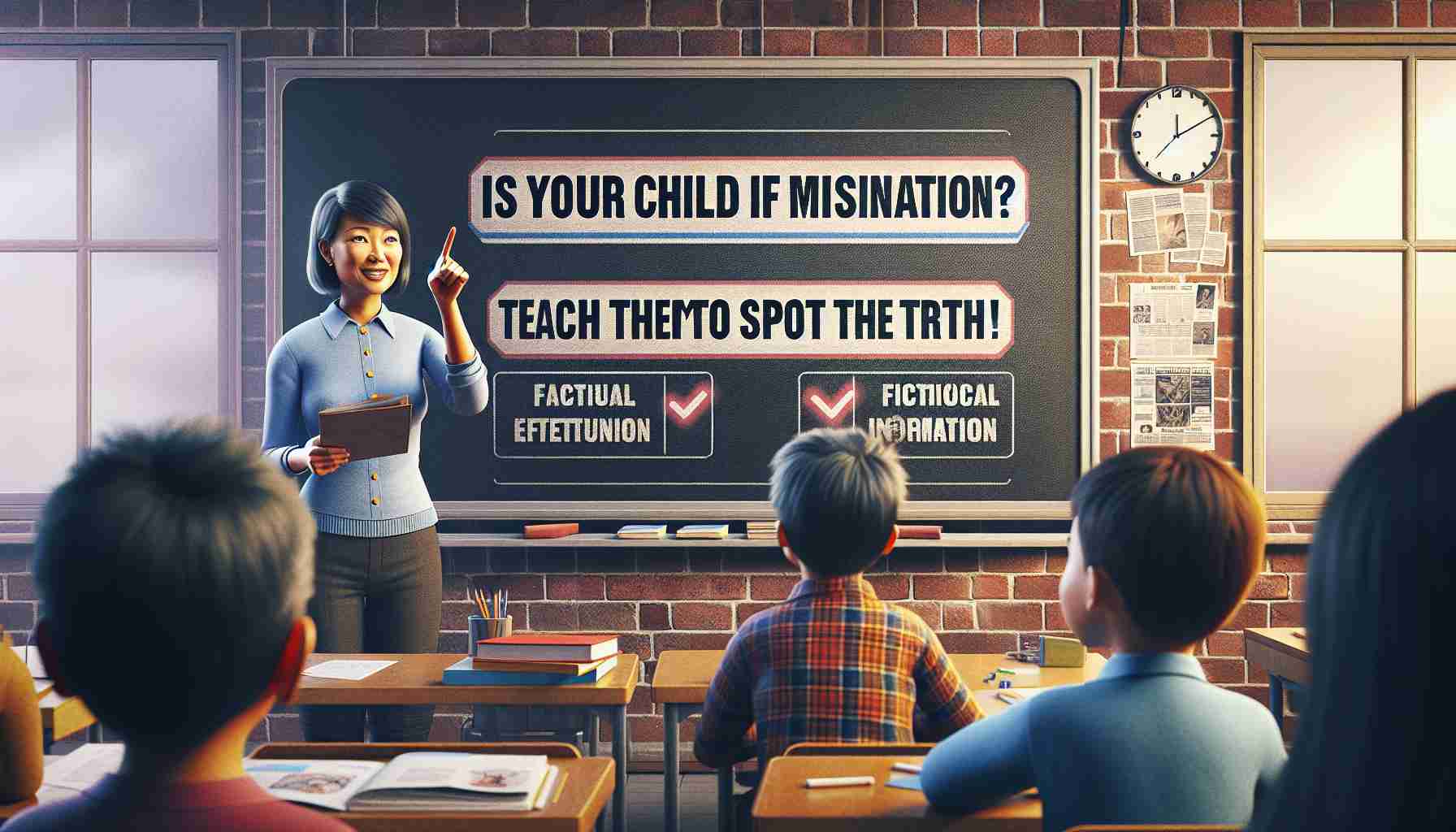Empowering Kids in the Digital Age
In our rapidly evolving digital world, children are constantly confronted with a barrage of online information, making it essential to equip them with vital skills. Navigating the internet requires more than just getting online; children must learn to discern factual content from misleading narratives. This understanding serves as a foundation for critical thinking, enabling them to safely engage with digital media.
To foster this ability, families can utilize existing technologies, introducing children to reliable fact-checking websites. Platforms such as Snopes and FactCheck.org can empower kids to verify information independently, helping them to become discerning consumers of news.
Discussing how algorithms shape online content is another key element. Children should understand that personalized feeds can limit their worldview and that seeking diverse perspectives is crucial for a well-rounded understanding.
Furthermore, teaching children about clickbait can empower them to look past sensational headlines and seek full stories. Encouraging them to assess the credibility of sources and consider context will enhance their ability to engage with information critically.
Hands-on practice is also effective; engage children with real-world scenarios where they evaluate the reliability of competing articles. Through these methods, we cultivate a generation that values information literacy and can contribute to a more informed society. By fostering these skills, we enable youth to thrive amidst the noise of misinformation.
Empowering Future Generations: Essential Skills for Digital Mastery
Empowering Kids in the Digital Age
In today’s digital landscape, children are inundated with vast amounts of information daily. As such, it is crucial to equip them with the skills needed to not only access content but to critically evaluate it as well. Understanding how to navigate the internet effectively prepares children to distinguish between credible information and misleading narratives, forming a cornerstone of their critical thinking abilities.
Key Strategies for Fostering Information Literacy
1. Utilizing Reliable Sources:
Families should introduce children to reputable fact-checking websites like Snopes and FactCheck.org. These platforms empower young users to verify the authenticity of information independently, nurturing their ability to discern factual news from misinformation.
2. Understanding Algorithms and Personalization:
It’s essential for children to grasp how algorithms influence the content they see online. Teaching them that personalized feeds can create echo chambers helps them appreciate the importance of seeking diverse viewpoints. This awareness is crucial for developing a comprehensive understanding of various topics.
3. Recognizing Clickbait:
Educating children about clickbait tactics enhances their media literacy. By helping them identify sensational headlines versus substantive content, they can learn to seek out complete stories. This critical assessment encourages them to question the credibility of sources and consider the context of the information presented.
Practical Engagement Techniques
Hands-on practice plays a pivotal role in reinforcing these skills. Here are some effective methods:
– Real-World Evaluation Scenarios:
Present children with competing articles on the same topic. Challenge them to evaluate which one is more credible and why. This exercise sharpens their analytical skills and fosters healthy skepticism.
– Interactive Discussions:
Encourage open dialogues about current events and online trends. Ask questions that prompt critical thinking, such as “What might be the motive behind this article?” or “What other perspectives should we consider?”
Future Trends and Innovations
As technology continues to evolve rapidly, the importance of digital literacy will only grow. Emerging educational tools and platforms focusing on media literacy, such as interactive apps and engaging online courses, are expected to make learning these skills more accessible and enjoyable for children.
Insights and Predictions
Experts predict that equipping children with strong information literacy skills will play a crucial role in combating misinformation in the future. As digital landscapes change and expand, proactive education will prepare the next generation to not only consume media wisely but also to contribute positively to society.
Conclusion
Ultimately, fostering information literacy in children is not just about teaching them to read between the lines; it’s about preparing them to thrive in a world where information can shape perceptions and actions. By engaging them through practical strategies and discussions, we can cultivate a generation that appreciates the value of truth and critical thinking in the digital age.
